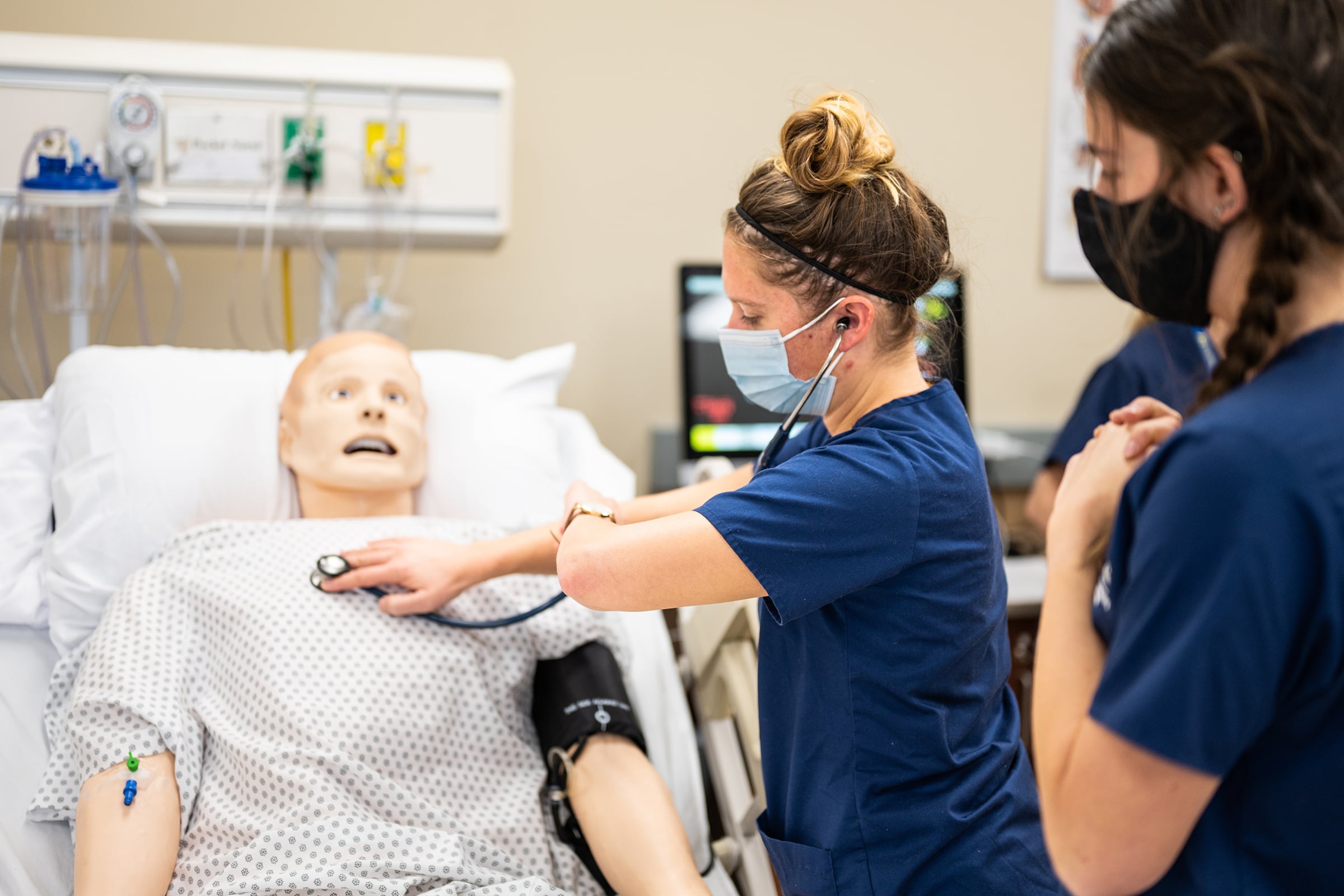By the time Kelli Adrian graduated from Colorado Mountain College’s teaching program, she had worked in three schools at four different grade levels. Her hands-on experience led to three job offers.
Three years after graduation, Adrian, 38, said her CMC education gave her the training and connections she needed to get hired at an elementary school in Eagle, a town in the central Colorado mountains.
The college also offers other programs designed to get students jobs in the region once they graduate. They include training in nursing, but also community-specific job preparation such as avalanche science, ecosystem science and stewardship, and fire science with a focus on wildland fires.
The programs are carefully built to ensure students stay connected to local jobs, a practice lawmakers want to spread at public colleges.
A bill in the Colorado legislature would provide $91 million to expand or create programs like those at Colorado Mountain College. House Bill 1350 won unanimous approval from the House Education Committee and needs to pass the full House and Senate.
Funding includes $95 million from the federal money sent to states to respond to pandemic impacts. The legislation is a result of a yearlong state study that recommended how to use those funds.
Along with the bill to help schools train regional talent, lawmakers filed bills to better track student data and the return on investment, as well as to create more opportunities for students to earn what are called stackable credentials. Stackable credentials are training and certification that can be gained over time, rather than in one stint at school.
“The idea is we need to drive funding for local use for local needs,” said Rep. Julie McCluskie, a Dillon Democrat, who sponsored the bill.
Not every college degree leads to a job within the graduate’s home community.
For example, Adrian earned a political science and international studies degree at Colorado State University years before enrolling at Colorado Mountain College.
Her first degree boosted her earning potential and marketability, but it didn’t automatically mean she would get a local job where she graduated. Adrian spent years working as an events coordinator before enrolling at Colorado Mountain College.
CMC not only connected Adrian to a community of employers, but also taught her how to put together a resume, clarify her goals, and make sure she got the certifications she needed to launch her teaching career. She didn’t have that help when she earned her first degree.
“If you graduate from CMC, you’ve worked closely with the surrounding community and they know that you’re very, very well trained,” Adrian said. “You’re trained for what employers are looking for.”
Colorado Mountain College is a public college supported by local taxpayers and offers industry certifications, and also associate and bachelor’s degrees. Its main campus is in Glenwood Springs. It has 10 other mountain town campuses.
School leaders credit the college’s connection to its communities as a reason why it has prioritized programs that meet the needs of mountain towns.
Matt Gianneschi, CMC chief of staff, said taxpayers demand that the college provide the training necessary to get students jobs right after graduation. To further the school’s mission to serve its community, Gianneschi sits down with local chambers of commerce leaders once a month to discuss what employers need.
He said the school maintains budget reserves to build new programs, or ends them if they’re not useful any longer to the community. It also repurposes programs if the job market has shifted.
Financial and programming flexibility allows the school to react nimbly to job market changes, Gianneschi said.
He said that’s why the $91 million would go a long way to allowing school leaders statewide the flexibility to think about how their schools serve communities. He also expects the money to further the school’s mission.
“It’s all about connectedness with community and quality in having academic experiences that lead to sustainable-wage careers,” Gianneschi said. “Even if our enrollment declines, but we’re still providing that support to our community, we can consider ourselves a success.”
Jason Gonzales is a reporter covering higher education and the Colorado legislature. Chalkbeat Colorado partners with Open Campus on higher education coverage. Contact Jason at jgonzales@chalkbeat.org.







